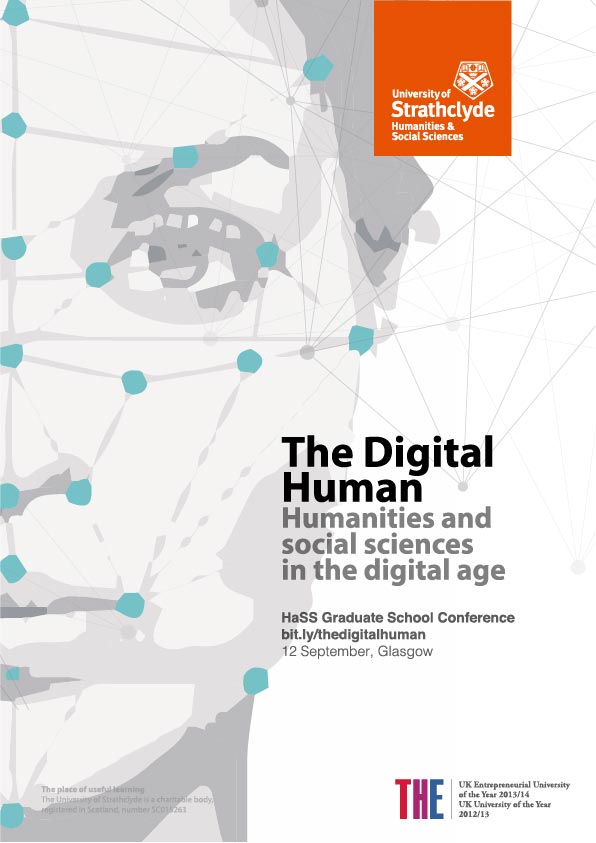The XPMGla team were accepted to the Digital Human conference at the Unversity of Strathcyde in September 2016. The group was represented at the conference by Elina, Irina and Stuart.
The presentation
The abstract
Experimental Methods in the Humanities at Glasgow: Effective Interdisciplinary Collaboration
This paper traces the brief but already accomplished history of Experimental Methods in the Humanities at Glasgow (XPMGla), a postgraduate, interdisciplinary research group. It outlines our rationale for founding the group, and discusses in detail two case study examples of projects we have recently undertaken. In doing so, this paper demonstrates that, through collaborative, interdisciplinary, progressive, technologically-led Humanities-based approaches, we have been able to productively leverage our collective expertise to design, plan, and carry out successful projects with true impact. It argues that, ultimately, without our Humanities-based approaches, these projects would have not been as effective and impactful, or potentially even possible.
Our first project case study is XPMGla’s winning pitch to the Centre for Copyright and New Business Models in the Creative Economy (CREATe) hackathon. We investigated copyright control in the video games industry, with specific regard to user-made modifications (or ‘mods’) to existing games, in order to find and present evidence that protection, high or low, impacts creative production. Our final pitch included academic research, sampling, formulae, data analysis, data curation, and visualisation, and we are in the process of taking this project further with CREATe.
Our second project case study is XPMGla’s web design workshop for the Strathclyde Summer Experience programme at Strathclyde University, a part of the Focus West widening participation scheme. The project involved planning, designing, and delivering a web design workshop for pupils from care backgrounds in areas with low percentages of progression to Higher Education. Specifically, this included teaching pupils key principles of web design – such as wireframing, content creation, HTML and CSS – enabling them to build and present their final website.
XPMGla was founded in February 2016 as a postgraduate research cluster aiming to draw members from all areas of experimental Humanities-based scholarship, in order to share skills, gain new perspectives on research, and collaborate on interdisciplinary projects. Our group members come from a wide variety of disciplines, including English Language and Literature, Media Theory, The Humanities Advanced Technology and Information Institute (HATII), Computer Science, Economics, Film and Television Studies, and Computer Games Studies. However, we are unified through our Humanities-based approaches and progressive process, media-, and technology-based scholarship. The group also runs in parallel with the Experimental Methods in the Humanities group at Columbia University, New York, with whom we intend to collaborate in areas such as publishing, grant work, and symposia.
This conference, hosted by the Strathclyde HaSS Graduate School, aims to celebrate interdisciplinary relationships by sharing postgraduate research that highlights the ways in which science, technology, humanities, and social sciences interact with one other.

